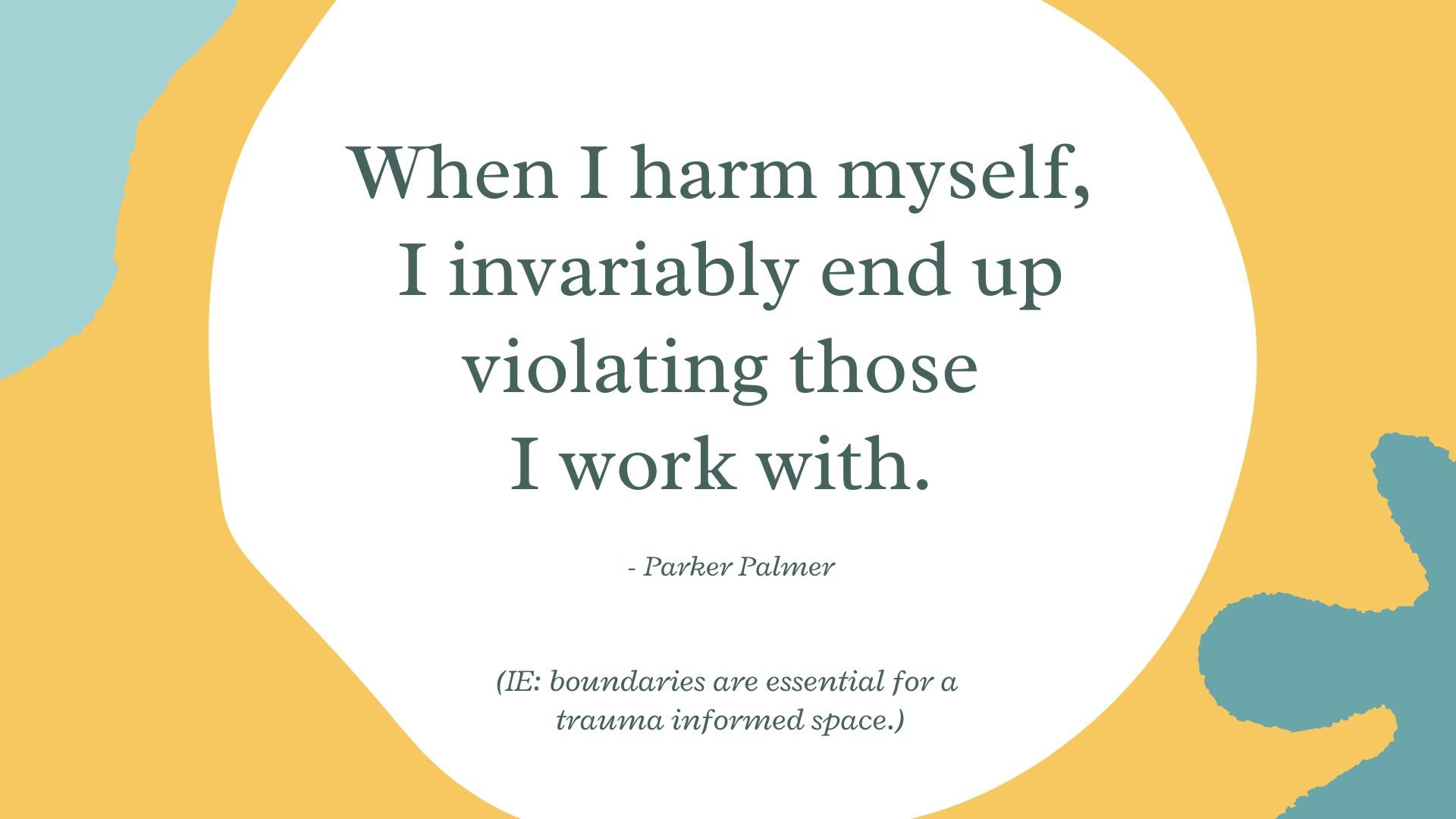Beginning in August 2020, I have been facilitating conversations and peer learning opportunities at Maryland Institute College of Art and beyond, for fellow faculty, called Boundaries and Vulnerability: Trauma Informed Pedagogy.
Out of this work, I am currently engaged in a research project called Critiques to Build Resilience, in which I am surveying and interviewing students at Maryland Institute College of Art to learn about their experiences within critique, whether they are experiencing principles of trauma informed practices in critique settings, and the impact on their learning experience. Ultimately, I will develop a toolkit with this research. My initial findings and notes about the project are available here.
The original presentation from 2020 is available here.
An adapted presentation created with Vy Vu in 2021, is available here.
Back when the pandemic was at its height, my goal was to support faculty in better understanding our role of creating a space to support learning, putting the safety and well being of students first, during the most challenging semesters for teaching and learning in the current collective experience — even though, as I’ve been saying frequently, we certainly are NOT all experiencing things the same way. As educators, I hope instead of being overwhelmed, we can all begin where we are and take steps to transform our approach to teaching this semester and beyond, in a way that truly considers the wholeness of what education can and should be. I know I am always expanding.
Here is the workshop description :
This workshop will provide a background in how trauma works, how it might show up in the classroom, and how to address it in a boundaried and healthy way. The session is grounded in the reality that teachers deserve boundaries, acknowledging that many faculty are currently dealing with trauma and stress, alongside our students. The workshop considers a broad understanding of trauma that includes recurring experiences, such as racism; individual and isolated ones, like some instances of sexual violence, and even collective experiences, like the current pandemic. By offering strategies for adapting syllabi and course content to acknowledge the trauma and disruptions that students and faculty are likely facing, this workshop will include approaches to acknowledging that trauma has occurred in academic settings; ways to address these feelings in the classroom through setting boundaries, resource sharing, and vulnerability; and embodying the experience and healing of the trauma through visual art, when language is inadequate.






